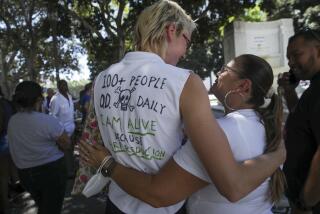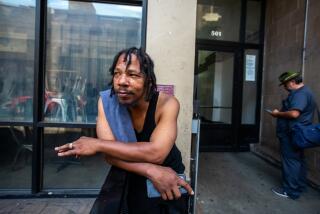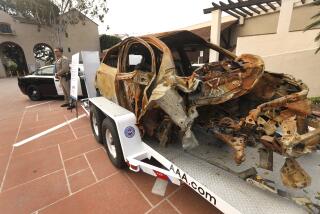Dope, Driving . . . Death
- Share via
Those who still think of, or defend, drug use as being in any way “recreational”--as if it were an activity no more hazardous to health than a brisk walk or a round of golf-- would do well to ponder a study out of New York City on cocaine and its relation to fatal auto accidents.
Covering a four-year period and published in the latest issue of the Journal of the American Medical Assn., the study found that nearly one-fourth of drivers between the ages of 16 and 45 who died in recent car accidents tested positive for cocaine. Earlier studies had found that 11% of New York’s population were regular cocaine users. A cocaine-related fatality rate more than double the user rate suggests that the drug is a major factor in deadly accidents.
The one-in-four figure may in fact be an understatement: Blood tests for cocaine were not administered to drivers who were fatally injured but who lingered two days or more before dying, because testing done more than 48 hours after cocaine is used aren’t effective. One other type of fatality is absent from this study: There is no way to tell how many occupants of other vehicles or pedestrians were killed or maimed by drivers who had been using cocaine.
Researchers aren’t sure how cocaine impairs driving skills, but several paths of speculation are open. Cocaine users say that within minutes of taking the drug they feel hyperalert, but many also report a mood of aggressiveness and irritability, along with a readiness to take greater risks. Later, addicts say they feel edgy or confused, effects they often try to offset with sedatives, usually alcohol. Half of the cocaine users in the New York study were also found to have alcohol in their blood.
New York City, of course, is not the nation, and the threat to public safety that cocaine users present there doesn’t necessarily reflect the national experience. Still, the ability of society to function relies to a great extent on implicit mutual trust, on a reasonable expectation that most people most of the time will behave sanely and responsibly. Drug use, and particularly these days cocaine, inescapably works to erode that trust. The alarming figures from the New York accident study provide still more evidence of how the social fabric is being rent.






